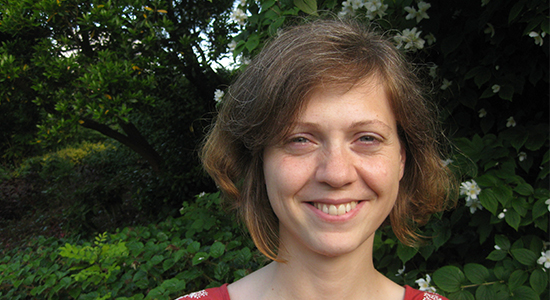Voices of madness from around the world
When the old world of empires and colonies fell apart after World War II, the colonial racialized idea of the human mind was challenged by thoughts of a global human psyche and a need for a global, or universal, psychiatry - and a new discipline of transcultural psychiatry emerged.

Ana Antic, now Senior Lecturer at University of Exeter, will 1 August join University of Copenhagen and Department of English, Germanic and Romance Studies. She will be heading the ERC-funded project ‘Decolonising madness? Transcultural psychiatry, international order and the birth of a global psyche in the aftermath of the Second World War’. The project aims to provide the first systematic, historic account of transcultural psychiatry and of the decolonization of psychiatry.
- I argue that transcultural psychiatry started as an attempt by western psychiatrists – in the aftermath of the horrors of WWII – to try to leave behind the framework of colonial psychiatry. That is to try to come up with a more inclusive platform for communicating between western and non-western concepts about mental health and mental illnesses, says Ana Antic on a Zoom-connection from the south of England.
An important niche
Ana Antic is a historian with an MA-degree and a PhD in Modern European history from Columbia University in New York. To her, the interdisciplinary research area of history of psychiatry is pivotal in understanding broader political discussions and ideas:
-Psychiatry is central for understanding of what happened in the middle of the 20th Century. It changed the way people thought about the human mind, and it is central in the broader political discussions of the time. Colonial psychiatry is central to the colonial project – it claimed to offer a scientific explanation to why colonized nations and societies should be ruled by other with its hierarchical and racialized worldview. The main concept in trans-cultural psychiatry was universalism. The universalists believed in a global psyche, an inclusive model of the human mind that would fit this new post-colonial world. Universalism was part of a political movement at the time. My project, however, also explores this critically, and looks at the significant continuities between the two disciplines. For instance, universalism was often reinforcing Eurocentric tendencies, and West European cultural and medical patterns were declared 'universal', says Ana Antic.
Voices from around the world
- History of psychiatry will always be interdisciplinary; a mix of the humanities, the medical sciences and anthropology, with anthropology being central to my project. The actual archives that we will be investigating in the project is related to a case story, a project run by WHO in the 1960’s, called ‘International Pilot Study of Schizophrenia’ or IPSS. It is still the most far reaching project of that kind. IPSS aimed to explore the universal nature of schizophrenia in nine different countries: how the expression, experience and treatment of schizophrenia did or did not differ across the world. The project was based in the UK, but it also included Denmark, a few Eastern European countries as well as Nigeria, India, Taiwan and Columbia. We will have researchers or research assistant in all the countries as a big part of the project, Antic explains.
- One of the core aims of the project is to decentre the history of the discipline, i.e. to explore the role of psychiatrists and other 'psy' professionals from former colonial territories and from socialist Eastern Europe.
Global and local reseach
The project spreads out, geographically, and its focus will be the different geographical areas of Engerom as well as the rest of the world. Besides research assistants, hired to go through local archives and documents, three interdisciplinary postdocs will be employed at UCPH: a historian, a medical anthropologist and, hopefully, someone with a clinical background and an interest in transcultural psychiatry.
-The most important documents we will be looking at will be psychiatric patient files – hospital files that were created in the big international project of IPSS. Previously I have worked with patient files as core material. They are interesting, because they include interviews with patients. That way we will be able to hear the voices of the patients, Antic concludes.
